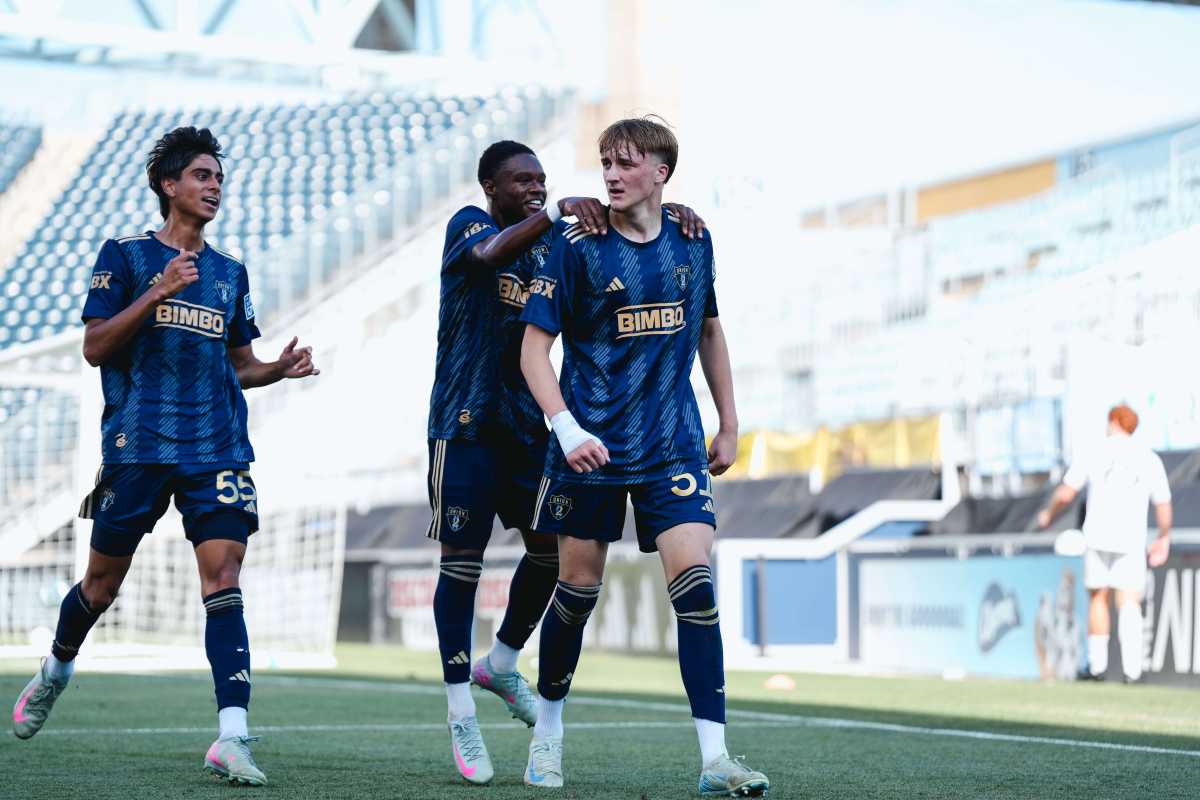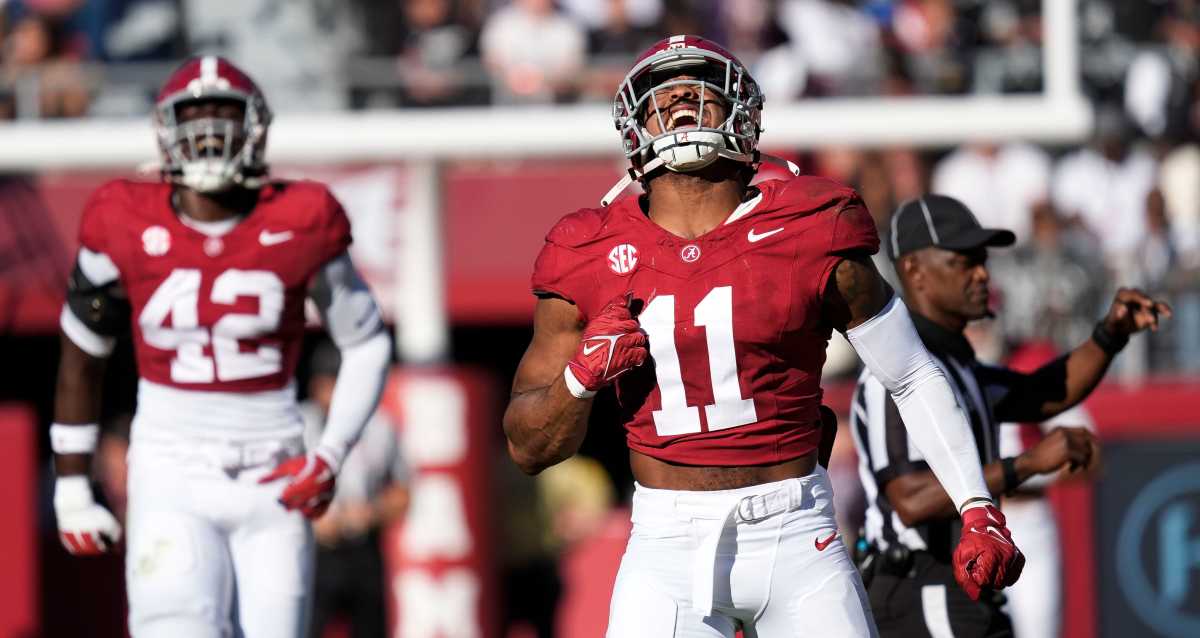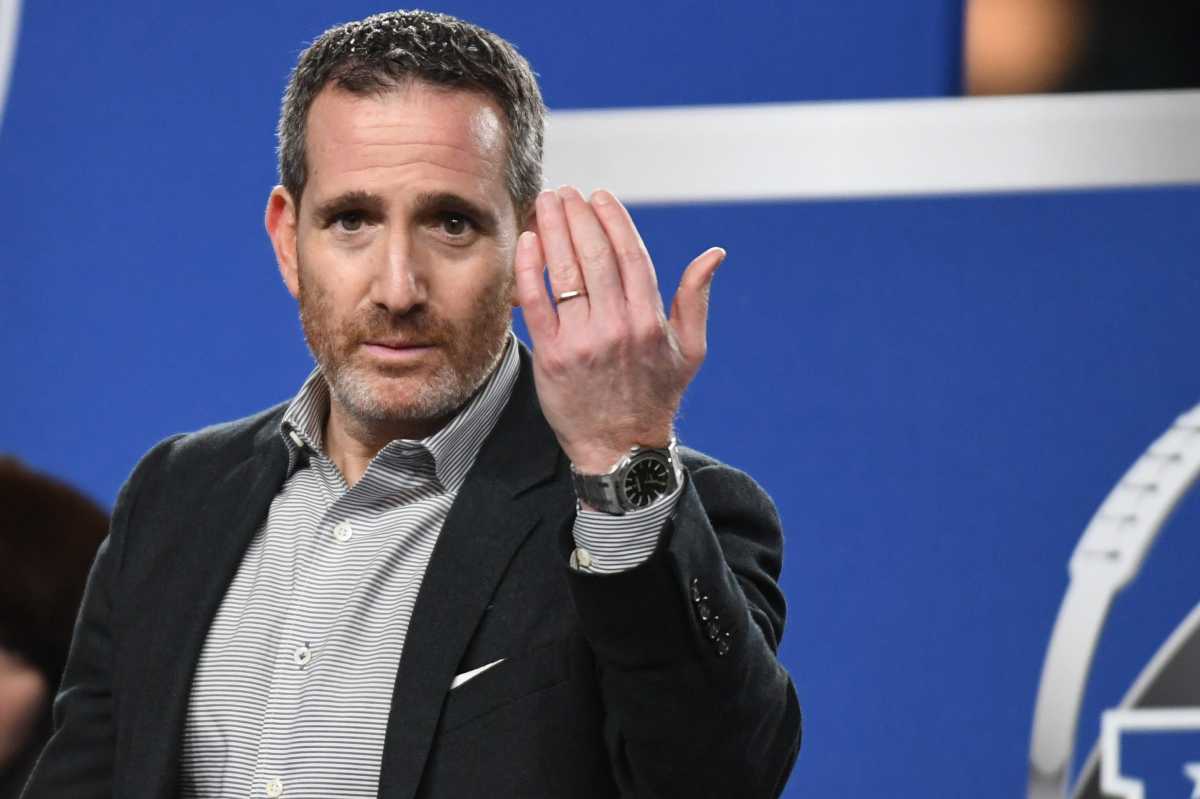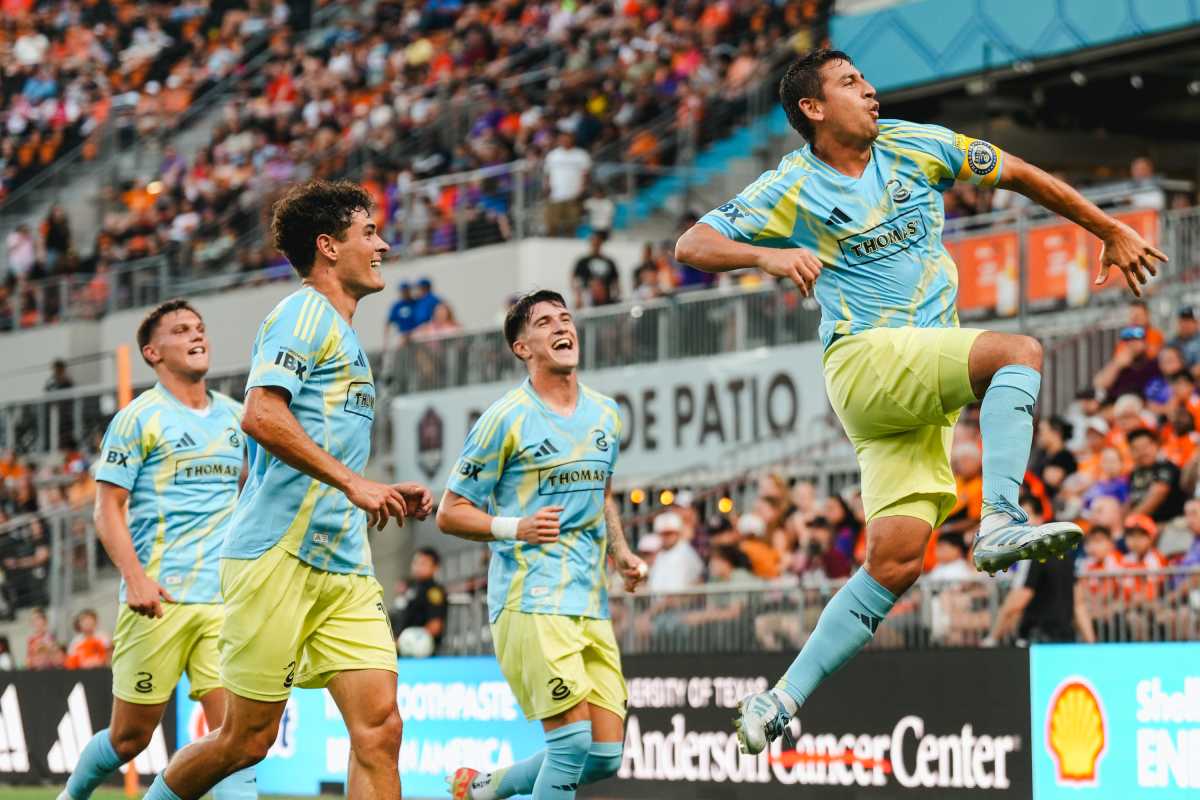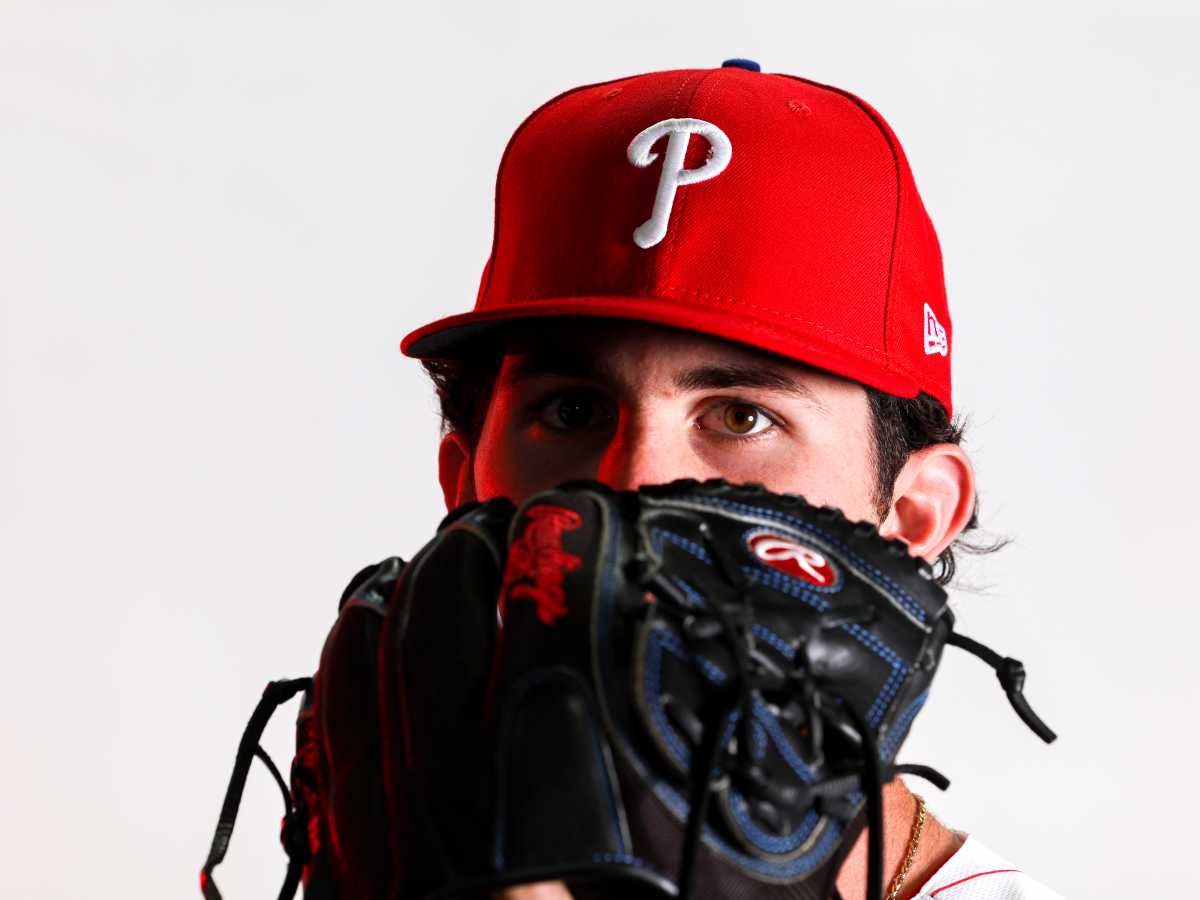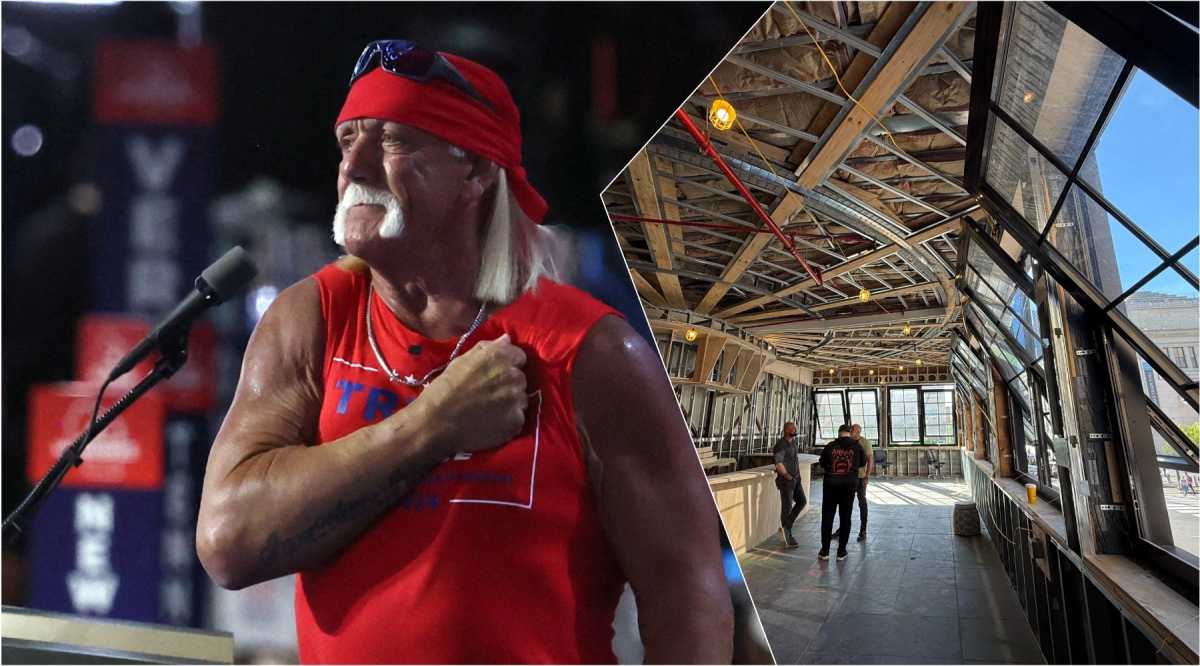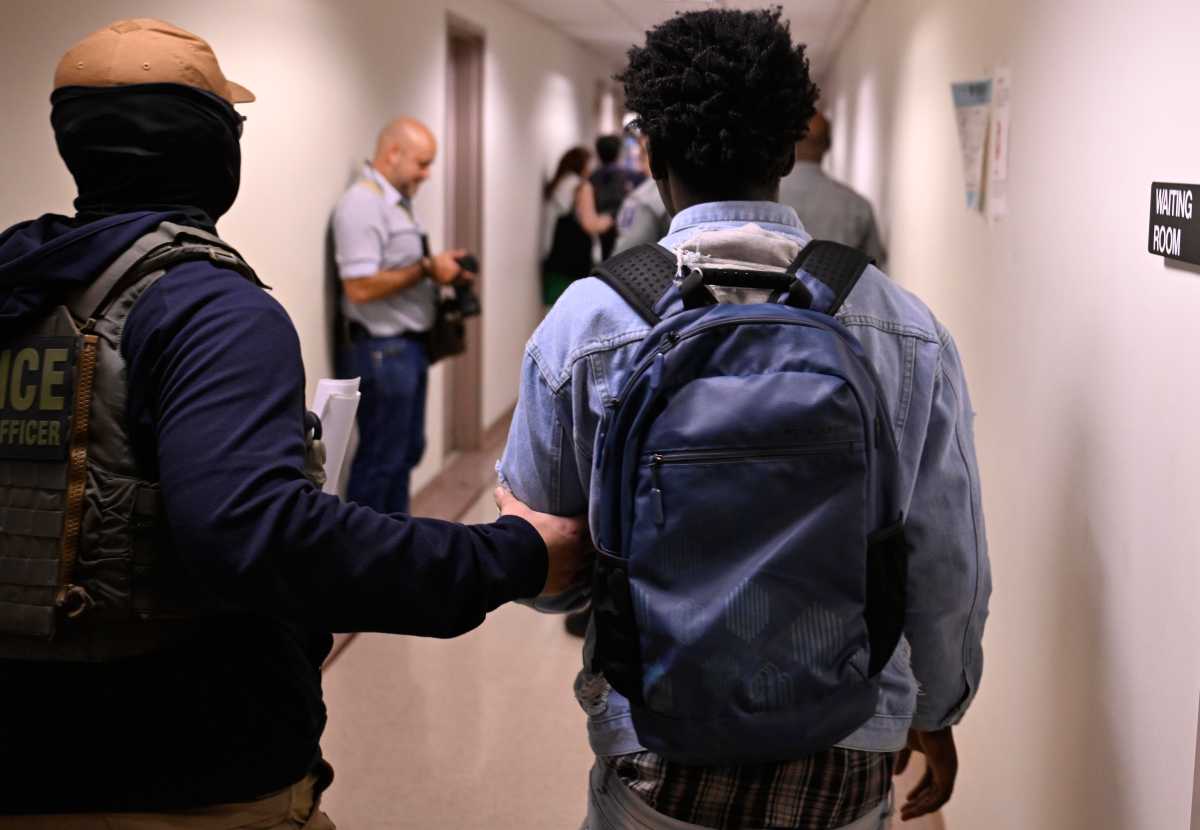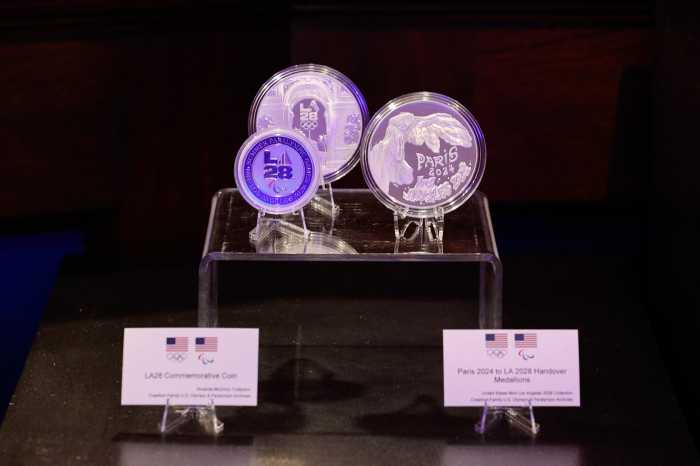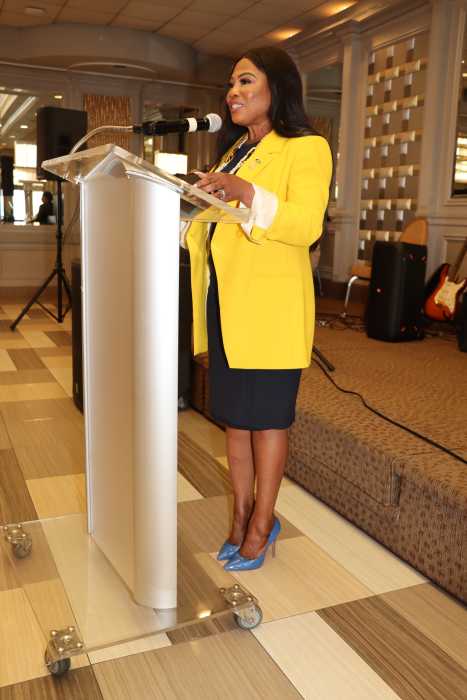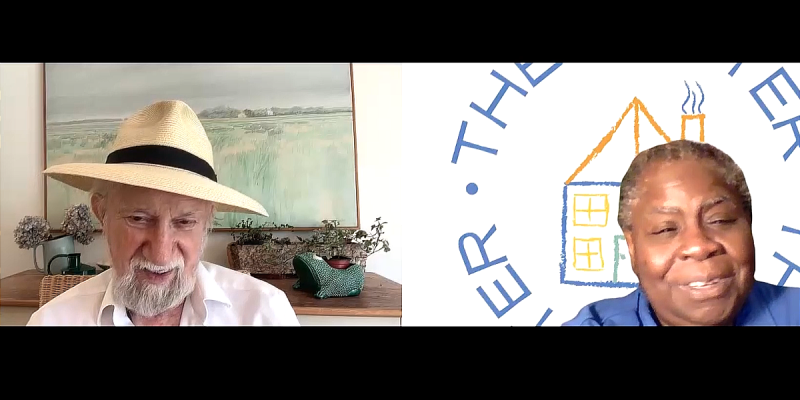Like SpongeBob SquarePants, the character he’s voiced for 17 years, Tom Kenny is happy. “I think I’ve got the best job — not just in showbiz, but in the world,” he tells us. Though his résumé is clogged with animated voiceover work, it’s the Nickelodeon staple — now getting its second movie, “The SpongeBob SquarePants Movie: Sponge Out of Water” — for which he’s most recognized. But Kenny also has a history of very non-child-friendly fare, including the legendary sketch comedy show “Mr. Show” and “Shakes the Clown,” the 1993 cult comedy by his childhood friend Bobcat Goldthwait. Fun fact: The character he played in the latter — bitter, evil clown Binky — inspired the very good 1996 R.E.M. song “Binky the Doormat.”
It’s interesting that “SpongeBob” records with the cast altogether in the studio. That’s not how most animated shows or movies do their voiceover.
Even if you have a home studio where you’re living, it’s just not the same as looking through the glass at the creator of the show and having eye contact with him and recording with the other cast members of the show. “SpongeBob” is one of the few shows that still records ensemble. The way we record is as an ensemble radio show. If everybody is in the scene, those actors are in the booth. I can’t picture doing it the way that so many shows, and definitely most animated features, do it, which is an actor by themselves, and then they Frankenstein together a whole bunch of performances by people who have never been in the same room or even met each other. It works, obviously. But I’m always hearing people saying, “This person co-starred with me and I still haven’t met them! We were in ‘Finding Nemo’ together!” With “SpongeBob” it’s an ensemble, the way that “Rocky and Bullwinkle” was, the way “Looney Tunes” was. I think it just brings a bit more soul to the whole process.
You can definitely sense a camaraderie.
That’s real. We all like each other, and for good reason. We’re all nice, functioning people, by showbiz standards, anyway. We’re functionally insane. We’re a ragtag group of misfits, but we’re pretty good at life.
It’s kind of amazing the show hasn’t changed much over such a long period on air.
The characters are the same as they ever were, which I think is what people like about animation. Bugs Bunny is always Bugs Bunny, Bart Simpson is always Bart Simpson and SpongeBob and Patrick are always SpongeBob and Patrick. It’s not like there’s a “Mad Men” character arc, where if you start watching in season four you say, “I don’t know what’s happening!” You can get [who’s who] within five seconds of watching any episode. The unchanging-ness of those personas is what gives animation this comfort food aspect that people love. It’s like a comfortable beat-up slipper you can’t wait to get put on after work because your feet are killing you.
What kind of feedback have you received from people who’ve watched it since they were kids and are now young adults?
I think people have a different relationship with animation and animated characters than they do with other things. People feel stronger about them, especially because it’s been around for so long. They have stronger feelings for SpongeBob than they do for, say, Honey Boo Boo. It’s deeper. It’s great to be a part of something that takes hold like that in people’s lives. It’s been 15 years that “SpongeBob” has been on the air. So if a kid was nine then he’s 24 now. Some of those people are starting to have kids of their own. They come to meet you when you do appearances. Some people want to hug you and say, “Thank you for being the soundtrack to my childhood,” or “You were the voice I heard in my head when I was growing up” — in a good way, I think. It’s not like I was telling them to kill their dog.
It’s also unusual to be known for one role while still going out and hustling for more work.
It’s something very few actors really get to experience. When you’re a character actor or voiceover guy, it’s job to job. You’re like a migrant worker, almost. The longevity [of “SpongeBob”] is an unbelievable statistical anomaly. It’s like, I didn’t buy that many lottery tickets and I won the lottery. It’s a totally random, harmonic convergence of people you met and your agent getting you an audition. Actors have so little control over their own lives; it’s nice to have something you’re not in control of that’s actually positive. There was a point when “SpongeBob” was cancelled after the first few seasons and the first movie. We went to a wrap party that I thought was the season wrap party but was the series wrap party. Nobody knew. So I already feel like I dodged a bullet.
Whereas some people first got to know you from “SpongeBob,” even before that was on I knew you from your live-action work, on sketch shows like “Mr. Show” and in Bobcat Goldthwait’s “Shakes the Clown.” Do you actively seek live-action work at all nowadays?
I tend to not do on-camera stuff now. I do it when it comes up. If someone says, “Would you like to be on this sitcom and play a fussy bank clerk” or whatever it is, I’ll say yeah. But in terms of coming in and auditioning and doing the callback — no. I have too many cartoons to do. I have eight or nine series at a time. That’s five days a week, every day. I love doing voiceover; I don’t always love being on camera. I tend to dance with the girl that brought me, so to speak.
What about your lifelong friendship with Goldthwait?
I’ve known him since we were little kids. Now I have this “SpongeBob” movie, Bob has a documentary at Sundance that’s getting raves. He’s been texting me from Sundance. We met in first grade in Syracuse, New York, where there’s no show business culture. We were into comedy albums and cartoons and later punk rock and The Ramones. That’s kind of a beautiful story. “Shakes the Clown” was Bob’s first directorial thing. It didn’t do well. The studio was like, “Oh my god, this is a bomb.” But it had this after-life as a cult movie. And now Bob’s at Sundance and he makes these independent movies that people love.
And “Mr. Show” is the same thing. That’s a show that is so much more powerful in death than it ever was in life. It’s had this after-life. When it was on it was fun and we had a good time. It was a great experience. But HBO didn’t really care about it. It was on at three in the morning. And now it’s this big cult touchstone for people of a certain age. Guys like Tim and Eric, they wanted to do sketch comedy because of Mr. Show. You put stuff out in the world and some of it sinks and some of it swims, and some of it sinks and then swims.
It’s amazing how many people were on that show who became humungous: Not just Bob Odenkirk and David Cross, but Sarah Silverman, Paul F. Tompkins, Brian Posehn…
Jack Black was sleeping on a futon in his mother’s house when I met him. We were all thinking, “This guy’s going to be huge.”
Several “Mr. Show” alums recently inferred they were maybe getting the band back together to make something new. Have you talked to them yet?
I have not talked to them, but I know there’ve been some rumblings that the writing room is getting back together. Hopefully we’ll be on-board somehow.












